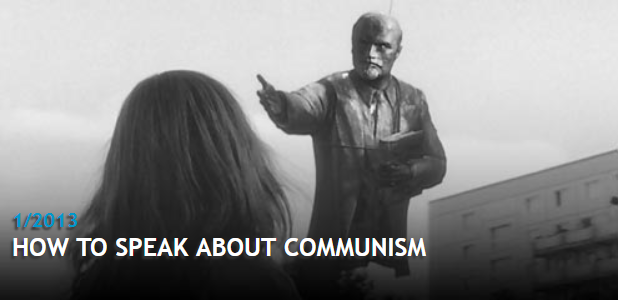Zdivočelí rodáci: Jak (ne)zobrazovat nástup KSČ k moci
Fellow Countrymen Gone Wild: How (Not) to Depict the Rise to Power of the Communist Party of Czechoslovakia
Author(s): Jan Lomíček, Ondřej DanielSubject(s): Media studies, Political history, Recent History (1900 till today), History of Communism, Identity of Collectives
Published by: Historický ústav SAV
Keywords: ideology; propaganda; The Natives; Jaroslav Matějka; The Feral Country; Jiří Stránský; population expulsion; drought of 1947; two-years plan; February 1948;
Summary/Abstract: In this study we aim to present a comparison of historical topics displayed in two Czech TV series Rodáci (The Natives, made in 1988) and Zdivočelá země (The Feral Country, filmed from 1997). We focus on period of 1945-1948 they both presented and compare similarities and differences in the two ideological narratives before and after political change of 1989. Deploying concepts of ideology elaborated by Slavoj Žižek and Terry Eagleton and propaganda of Jacques Ellul we try to examine how TV series dealing with historical topics were used either to popularize already formed historical narrative before 1989 or to form a new one after the political turn. In particular we outline the issue of heroes-cult creation, symbolized on the one hand by character Petr Vitásek in Rodáci. This TV series depicts his genesis from young rebellious adolescent into a conscious member of the communist party fighting in its afterwar political struggle for power. On the other hand we examine after-1989 ideological narrative taking example of the character of Antonín Maděra in Zdivočelá země, who represents a new type of hero, in many ways contradictory to the pre-1989 cult of heroes. This contradiction appears for instance in ways of presenting the Czechoslovak antifascist resistance of World War II, when the old narrative of freedom brought on the tanks from Moscow is substituted by liberation brought on the wings of Royal Air Force. Following the contradictory signs, we follow the signs of these hero-types, which bear similarities, based on the Ellul typology of successful propagandistic collective myths – myths of work, happiness, nation, youth and hero. In the following parts we outline topics of local and regional identities, as well as intrigues of the 1945-1948 period, including ethnic cleansing in Czechoslovakia.
Journal: Forum Historiae. Časopis a portál pre históriu a príbuzné spoločenské vedy
- Issue Year: 7/2013
- Issue No: 1
- Page Range: 75-91
- Page Count: 17
- Language: Slovak

